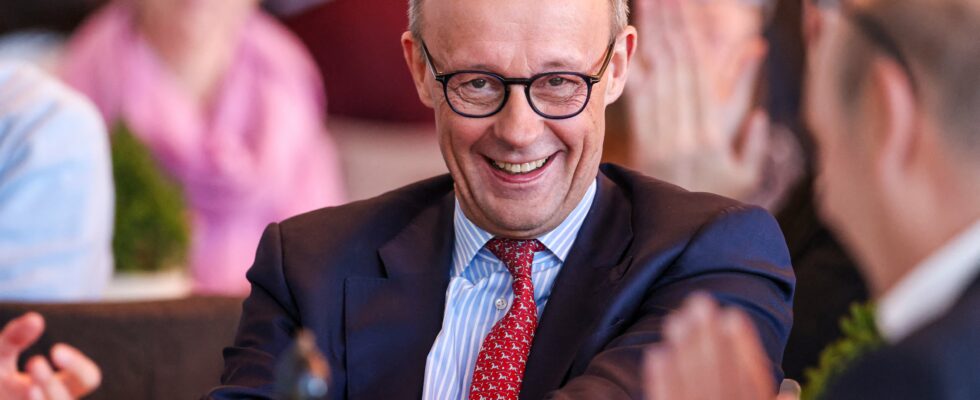He measures 1.98 m, which distinguishes him very clearly from Iznogoud, the nasty and surly little vizier who rages at the court of the caliph Haroun El Poussah, in the comic strip by Goscinny and Tabary. But like him, he will have taken the time to mature his revenge, not to say his revenge, in the name of this universally shared fixed idea in politics that the hero of the comic strip repeats to himself without inhibition and while furiously clenching his fists. , which has become a famous quote: “I want to be caliph instead of the caliph.”
Friedrich Merz has long dealt with his Haroun El Poussah, Angela Merkel. More to the right than her, more economically liberal and more conservative, this austere-looking Catholic was her intimate enemy within the Christian Democratic Union (CDU), and thus one of the many victims of the “serial killer” who succeeded, in order to gain access to the Chancellery, in quietly and quietly killing those who, from Helmut Kohl to Wolfgang Schäuble, hindered his rise.
Since she had removed him from power by taking his place at the head of the conservative CDU/CSU group in the Bundestag in 2002, then president of the CDU and not yet chancellor, he had a hatred of her known to all. He left politics to become a business lawyer and a multimillionaire, went in his private plane to meetings and to the wedding of ex-minister Christian Lindner, played the clarinet with one of his daughters on the piano, in his native North Rhine-Westphalia. And patiently waited his turn.
An adult in the room
He will be 70 in 2025, and the time is now. Friedrich Merz, who assumed the presidency of the CDU in January 2024 after two successive failures, is favored in the polls to become the next federal chancellor of Germany, at the end of the snap elections on February 23. His past setbacks make his strong comeback and the chronicle of his predicted peak all the more spectacular.
Above all, he could find himself one of the few “adults in the room”, while the shaky European Union finds itself in need of leadership at the worst time, in a context of wars and explosive global instability, and facing the challenges the most serious she has ever experienced. President Macron has lost his authority in Brussels and around the world since the dissolution of the National Assembly and the series of turbulence that followed, combined with the abyss of public debt. The Italian Giorgia Meloni, ideologically close to her Hungarian counterpart Viktor Orban, only provides moderate support for Europe. The chancellor of Europe’s largest economy is today the weak link.
Anti-Scholz card
Olaf Scholz has ended his coalition and must submit to a vote of confidence in parliament on December 16. He will lose it, which will pave the way for a national vote in February, seven months before the scheduled date. To reorganize the essential organization of Europe’s defense and security, France, which remains at the forefront, must rely on Donald Tusk’s Poland and, outside the EU, on its military twin. and diplomatic that is the United Kingdom, firmly committed to supporting Ukraine before and since the arrival of Labor Prime Minister Keir Starmer. And about the future German chancellor.
Friedrich Merz is playing the anti-Scholz card to the fullest, who embodies the tradition of the Social Democratic Party advocating pacifism and proximity to Russia. Since the start of the war in Ukraine, Olsf Scholz has been pusillanimous towards Vladimir Putin and still opposes the delivery of Taurus medium-range missiles to kyiv. To the claimed posture of “chancellor of peace” that Scholz claims and to the pro-Russian pacifism that the far-right AfD party carries in his own way and not without success, Friedrich Merz opposes geopolitical realism by assuming a bellicose discourse, and when he quotes Montaigne, “cowardice is the mother of all cruelties”, it is a not very discreet allusion to his predecessor.
In addition to the questions of identity, immigration and purchasing power which run through all Western elections, the war in Ukraine will be the issue of the February 23 elections. If Friedrich Merz wins, the German chancellor who is already in regular contact with Emmanuel Macron will become one of the strong voices in Europe at this crucial and tragic moment.
.
